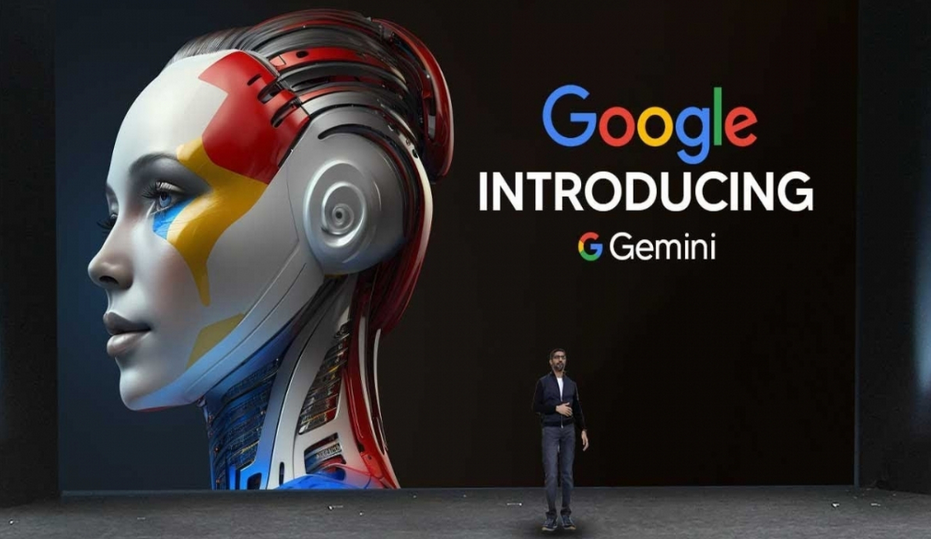Google has confirmed that Project Astra, its most ambitious artificial intelligence project yet, has been delayed until 2025.
Originally expected to debut by the end of 2024, the project’s new timeline was revealed by CEO Sundar Pichai during Google’s third-quarter earnings call. The delay signals Google’s cautious yet strategic approach to building AI agents that can truly interact with the real world — not just respond to text or voice commands.
What Is Project Astra?
Unveiled at Google I/O 2024, Project Astra is Google’s vision for the next generation of AI assistants — ones that can see, hear, and understand their surroundings in real time.
Unlike the traditional Google Assistant, which mainly responds to voice or typed input, Astra aims to deliver multimodal understanding — meaning it can process information from video, sound, and text simultaneously.
In practical terms, you could point your phone at a device and ask Astra, “How do I fix this?” or use smart glasses to identify objects, translate signs, or get directions — all powered by live AI perception.
Google describes Astra as its most advanced AI assistant ever, designed to work across phones, computers, and wearable devices. It’s not just a chatbot — it’s a context-aware digital companion that can blend into your daily life.
Why the Delay?
According to Pichai, Project Astra is now set for a 2025 launch. Earlier leaks suggested Google had planned a December 2024 reveal, but that plan has clearly changed.
Sources from The Information reported that internal testing and safety evaluations took longer than expected. Google wants to make sure Astra meets its high performance, privacy, and ethical standards before release — especially as AI regulation continues to tighten worldwide.
The delay also reflects Google’s strategic patience. The company doesn’t want to rush out a product that could fall short of expectations, especially in an environment where trust and reliability are crucial.
Pichai outlined Google’s three-part AI strategy, which underpins Project Astra’s development:
-
Global AI Infrastructure – Google is expanding its massive network of data centers and custom AI chips (like TPUs) to support advanced models.
-
Cutting-Edge Research – Teams at DeepMind and Google Research are developing Astra’s underlying multimodal reasoning and real-world interaction capabilities.
-
Product Integration – Google plans to roll Astra into its ecosystem of products — from Search and Android to YouTube and Maps — so it can reach billions of users.
In short, Google is taking the time to get Astra right — prioritizing precision, performance, and privacy over speed.
The Growing Competition in AI Agents
Google’s delay gives its competitors a little more breathing room — and they’re not slowing down. Two of the biggest challengers in the AI race, Anthropic and OpenAI, have been moving aggressively toward real-world AI systems of their own.
Anthropic’s “Computer Use” Feature
Anthropic, the team behind Claude AI, recently introduced a groundbreaking feature called Computer Use. It allows AI to autonomously control apps and web browsers — performing tasks like filling out forms, managing spreadsheets, or navigating the web without direct human input.
This innovation is a big step toward AI-powered digital agents, something Astra also aims to deliver on a broader scale.
OpenAI’s Real-World Agent
Meanwhile, OpenAI — the company behind ChatGPT — is rumored to be building an AI agent that can understand and interact with both digital and physical environments. The project reportedly combines advanced multimodal reasoning (like GPT-5) with real-time perception.
That means OpenAI’s agent could eventually watch, listen, and act on its own — the same kind of real-world capability Astra is being designed for.
With these rivals pushing forward, Google’s extra development time may be both a risk and an opportunity — a chance to refine Astra while ensuring it can outperform the competition.
Why Google’s Timing Still Makes Sense
Even though the delay may frustrate tech enthusiasts, the timing isn’t necessarily bad news.
Google just posted strong Q3 earnings, driven by its core ad business and growing demand for Google Cloud’s AI services. That gives the company the financial flexibility to continue investing in Astra’s long-term success.
More importantly, a 2025 launch might let Google align Astra’s debut with broader AI infrastructure upgrades and new product rollouts — possibly tied to Gemini, Google’s next major AI model.
In other words, Google is playing the long game. It wants Astra to debut as a complete, polished ecosystem, not an experimental product.
What We Can Expect from Project Astra
Even with the delay, Google has shared a few hints about what Project Astra will offer when it launches. Based on early demos and official statements, here’s what’s expected:
-
Real-Time Multimodal AI: Astra can process visuals, audio, and text simultaneously — allowing it to “see” and “hear” the world.
-
Context Awareness: It will remember conversations and understand context better than traditional assistants.
-
Cross-Device Functionality: Astra will work on Android phones, laptops, and smart glasses, adapting to different form factors.
-
Privacy and Safety First: Google says Astra will follow strict privacy protocols, ensuring user data remains protected.
-
Deep Google Integration: Expect Astra to connect seamlessly with Gmail, Maps, Search, YouTube, and Photos for a unified experience.
Essentially, Astra aims to merge the best parts of Google Assistant, Gemini, and DeepMind’s AI research into one powerful, intuitive agent.
A Glimpse into the Future of AI
The delay might seem like a setback, but it’s a sign that Google is taking AI seriously. Building a system like Astra — one that perceives, reasons, and interacts in real time — is an incredibly complex challenge.
By giving itself more time, Google can strengthen Astra’s capabilities, ensure safety, and integrate it deeply into its global ecosystem.
Meanwhile, the race to build the first truly “real-world” AI agent is heating up. OpenAI, Anthropic, and even Microsoft are investing heavily in this space. But with Google’s immense research power and technical infrastructure, Astra could easily become the defining AI platform of the next decade.
If successful, Project Astra will mark the beginning of a new era of human-computer interaction — where AI doesn’t just talk or type, but actually understands and engages with the world around us.
Final Thoughts
Google’s decision to postpone Project Astra until 2025 reflects a thoughtful, strategic pause, not a failure. Rather than rushing to compete, Google is preparing to release an AI product that could redefine the way people use technology.
With the backing of DeepMind, TSMC’s hardware support, and an AI-first vision led by Sundar Pichai, Project Astra could transform how we experience search, communication, and productivity — across every device we own.
The wait might be long, but if Google delivers on its promise, Project Astra could be the future of AI we’ve all been waiting for.




